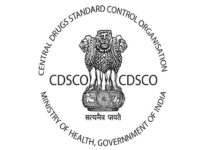Abbott, the global healthcare company has announced the introduction of a room-temperature-stable, single-dose formulation of carbetocin in India, which is available in convenient vials, to help in the prevention of postpartum haemorrhage (PPH). Abbott’s product is available in the private sector.
PPH refers to excessive blood loss of 500 ml or more after vaginal delivery and 1000 ml or more after a caesarean procedure, within 24 hours of childbirth. Although preventable, PPH is associated with almost 20% maternal mortality in the country.
PPH, if left untreated can result in complications like anaemia in the postpartum period or aggravate mental health problems including postnatal depression and post-traumatic stress disorder apart from other issues. Women may require additional treatment for PPH which can extend hospital stay. Additionally, PPH may also impact breastfeeding and nursing for the newborn.
The current prevention and treatment protocol for PPH requires cold-chain storage and distribution, as well as continual administration of medicines via intravenous drip infusion. This can impede access to quality healthcare for pregnant women in care settings where these requirements may not be feasible. The room-temperature-stable formulation addresses the challenge of maintaining cold-chain storage or transportation, which helps increase access to preventive treatment for PPH, across geographies.
Abbott has launched this formulation for the private market under its own brand through an in-licensing and co-marketing agreement with Ferring Pharmaceuticals Pvt. Ltd. India (Ferring), a subsidiary of the Switzerland-based global biopharmaceuticals company.
Results from the largest PPH trial published in the New England Journal of Medicine (NEJM), which enrolled nearly 30,000 women from 10 countries including India, indicated that carbetocin was non-inferior to oxytocin, the current standard of care, for the prevention of blood loss of 500 ml or additional uterotonic use (for the prevention of PPH during the active management of third-stage labour).
Dr Shanthakumari, president FOGSI (Federation of Obstetrics and Gynecological Societies of India), commented, “Postpartum hemorrhage is a challenge to obstetricians as it is sudden and can come unexpectedly and cost a mother’s life. In India, with our tropical climate, this new room-temperature-stable, single dose formulation of carbetocin can help us combat PPH and save lives by overcoming challenges of cold chain and help ensure ease of storage, transportation, and delivery to hospitals. It could help expand access and lower the duration of hospital stay for pregnant women.”
A single-dose formulation of carbetocin is convenient to administer since it is a single-dose and offers an intra-muscular dosing option in addition to intra-venous administration. It therefore reduces the need for at-risk pregnant women to undergo a prolonged stay at the hospital post-delivery.
This collaboration with Ferring, a leader in innovative reproductive medicine and maternal health, combined with Abbott’s commitment to women’s health, presents an important milestone in the nation’s efforts to enhance maternal health and ensure improved health outcomes post-delivery.
Commenting on this new formulation in India, Dr Srirupa Das, medical director, Abbott India said, “For over five decades, Abbott has helped improve the lives of women throughout their pregnancy and reproductive health. With the introduction of this room-temperature-stable carbetocin formulation in collaboration with Ferring, we are reiterating our commitment to improve maternal care, enabling both mothers and children to live through better health.”


















